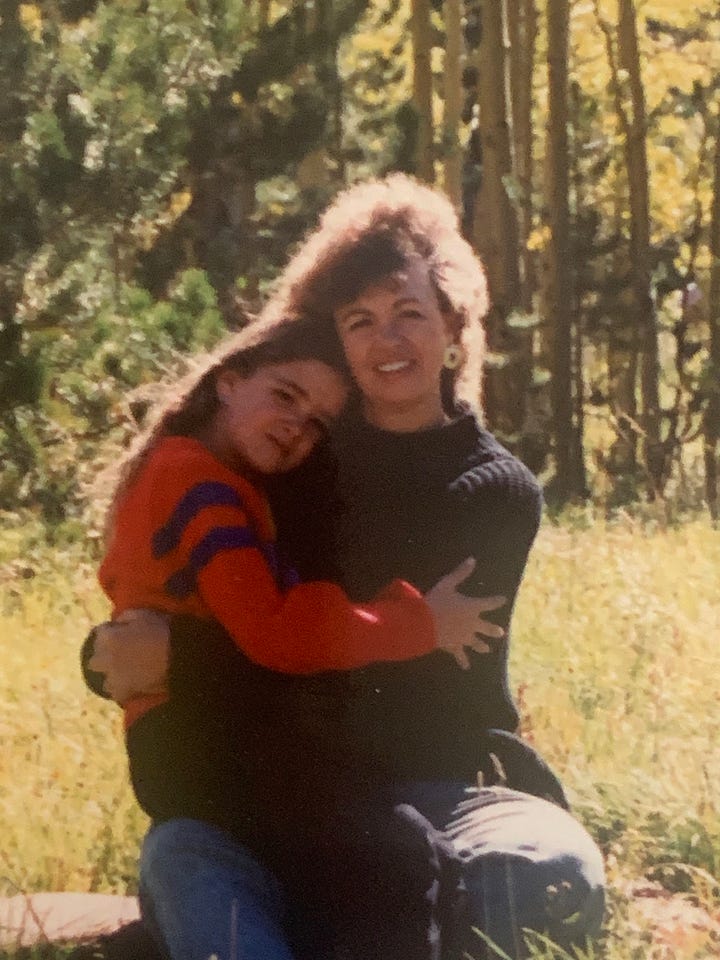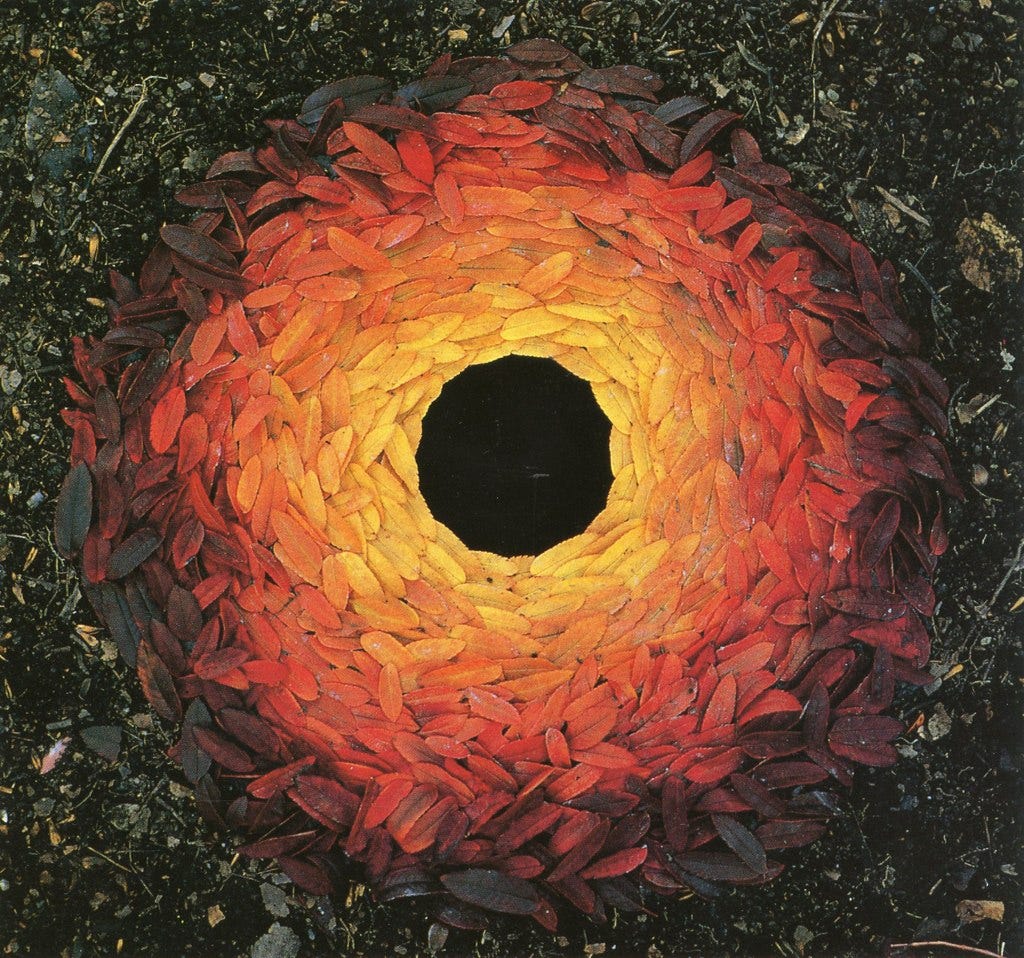I braid my 9-year-old’s hair each night. First I brush out the tangles with the big round, white brush with the right kind of bristles. We’ve experimented with many kinds. I’m careful to hold the top of her head when I get to harder knots so that it will hurt less. If she wears a hood all day because she’s in the portable classroom at school and it’s cold, then the tangles will be worse. Sometimes I set the brush down and work out a particularly bad knot with my hands, because I’ve learned that I can separate some of the strands and then brush it and it doesn’t hurt as much. Sometimes we talk. Sometimes we don’t. Sometimes she’s in a hearty mood and she doesn’t complain about the pain. A relief. Sometimes her eyes fill with tears and she tells me that she wishes I hadn’t given her my hair, that she’d gotten daddy’s thick, tangle-less hair like her little sister did. I get it. Either way, I find an elastic. I separate her now smooth, soft hair into three parts and plait them together. I put the elastic on the bottom to secure the braid. I say, “There you go.” Repeat repeat repeat….
My dad did this for me each night. I remember sitting in the tall chairs at our kitchen island and watching the light outside get dark through our two big windows over the sink and feeling his strong hands plaiting the three parts of my hair together, the elastic going on, There you go.
The art of care mostly disappears.
I’ve heard it described, I’ve probably described it myself, as Sisyphean. And it can be that—repetitive in an excruciating, mind-numbing, soul-destroying way (see: asking my kid to put her shoes on 17 times before we get out of the door in the morning).
It can also disappear in a different way—a way that feels more like sacred absorption than boulders and hills. It’s ritualistic, small and sweet, endlessly surprising. If I slow down enough while I’m braiding her hair, or snuggling in bed with her little sister after lights out, I can feel the way my body is getting absorbed into their bodies and becoming a part of this eternal return of this season of parenting. Everything happens over and over and over again and it will never be like this after it stops being like this. Every bagel half smeared with whipped cream cheese, every chapter read aloud, every dream heard, every spelling word practiced, every watercolor session cleaned up, every wrestle, every hug, every I love you, every laugh, every largely unnecessary band-aid—my labor, my witness, which is to say, my very life force, is poured into these children and then, ostensibly, vanishes.
I am the sum total of that absorption, that care, too. All those braids from my dad. All of that ox tail soup from my mom. I think, especially, about the way my mom paid exquisite attention to who my brother and I were, our true natures, and tried to fill our lives with mirrors of what she witnessed—books that would speak to us, after-school classes that would channel our unique way of grappling with the world, making and remaking it, friendships that would balance us out and teach us how to grow in relationship.


All of that is now inside me as I walk around the world in this 43-year-old body. I think people who have never met my mom, who know nothing about my upbringing, can probably feel it in me—that I am a woman who was a girl who was unconditionally loved and seen. That I am a woman who was a girl who was cared for with a sort of sacred attention that was not hovering, but honoring. It has nothing to do with a perfect childhood. I don’t even know what that is. It has everything to do with the absorption of care, of a certain quality of attention, that makes a person sturdy and supple later in life. Care disappears and it is also somehow eternal.
I’ve been wondering lately: is this part of why we’re so bad, societally, at honoring care? Because it disappears. Because it gets absorbed. Because it is largely invisible when it is done especially artfully and faithfully. (I mean, yes, I know it is also sexism and racism and all the isms, too, but stick with me here.) Is this why we struggle to pass legislation that supports its sustainability or don’t make more art about it that venerates its foundational role in our lives? (Or maybe almost all art is about care, we just don’t call it that?!)
Or is our challenge at honoring it in the public realm really about how profoundly vulnerable it makes us feel? When I think about how much my parents poured into me, I feel terrifically grateful and incapable of expressing that gratitude in any adequate way—like staring at a bright light; I just need to look away. If I hadn’t had that care, if I’d craved that care, if there was a part of me that would never feel full because of its absence, I can also imagine I would not want to talk publicly about family leave policy or fair pay for in-home healthcare workers or the myriad other things that somewhere in my subconscious would link back to my craving.

Care is like ephemeral art—an Andy Goldsworthy sculpture of mac and cheese and baby wipes and no tears shampoo and socks that never match and chore charts that never work and all that just gets blown away with the winds of time. And like art that isn’t static, isn’t permanent, can’t be put up on a wall and admired in a museum—care is devalued. We stumble on it sometimes in the wild and it takes our breath away, a momentary glimpse of the tenderness with which we hold and protect and nourish and delight in our loved ones; just like one of Goldsworthy’s mandalas, there’s a divine structure to it, a feeling of inevitability. It’s as ordinary as dirt and as sacred as the kind found at Chimayo. It’s here, there, and everywhere, so kind of nowhere.
Caring for someone you love is, of course, a reward on to itself, the deepest of them, but it need not be labor that happens in such embattled circumstances. It could be absorbed and still revered, invisible and still funded, ephemeral and still prized. It could be held as the center of our existence, rather than the thing we rush through to get to our “real work.” We could see and honor the seasons—caring for children, caring for elders—and the variable capacities—the neurodivergent and disabled and chronically and temporarily ill.
I wish we had policy and professional expectations that mirrored our better angels, which show up again and again and again. Meanwhile, the winds will keep blowing away our beautiful care. That’s okay. That’s as it should be. Most of what is wildly worthwhile is achingly impermanent.




I cannot express how your letter spoke to me and comforted me today. I recently moved 96 year old mum into a small, family-home style nursing home in Barbados. For the past 5 years my mum has been cared for in our family home by three auxiliary nurses - angels of mercy and love. When we had to sell our home to continue to pay for Mum’s care, those angels went with her to continue the 24 hour care Mum needs. A week after the move which went well, Mum appears to have had a stroke. She may not live much longer.
Your words about care, about the sacredness of it and its ephemeral nature struck deeply. Although the actual care my mum received could be seen as ephemeral, the effects / impacts on her life and mine will be long lasting- I am indescribable ly grateful to the three women who loved my mum, laughed with my mum, supported one another in times of stress, and welcomed me into their lives as a sister. I learned so much from them about the things that truly matter in life. I love them and they me in return.
Their salary is abominable- I wish I could give them 5 times what they make an hour. Instead, whenever I could I have them extra cash.
They called me each night and day when I was in my home in Canada and not with mum so I could video- chat with Mum, and talk with them.
When I was there just recently for the house sale and move to the nursing home, we hugged daily and shared blessed sacred moments of care for Mum. I
Waiting here now in Canada for the next stage in Mum’s life, I treasure those gifts of care- for me and for Mum. I am newly aware of all those small moments- as you so beautifully put it- in our day to day lives.
I went through slides I brought back that my Fad took long ago - of my early years with my parents, and later years growing up. The visual scenes of care are there. As they are in the hundreds of photos I have of similar moments with my three children.
Instead of mourning the fleeting nature of those moments, however, I vow to hold the knowledge close that I had them, and that their effects resonate through the years, enriching my life and the lives of my children.
Nothing is lost- just transformed in beautiful ways.
Thank you as always for mysteriously writing just what I need when I need it.
❤️
The vignette about hair brushing, and how you remember it from your youth, brought back to me the daily hair brushing administered quite differently to my very long hair. In my case I had to be the one to learn for myself how to place my hands to reduce the pain of it. And that understanding helped me brush and comb my daughters' hair.
I don't think that those who received loving care as children are necessarily more likely to stand up for public policy and institutions that support care-taking. It could well be the opposite. Sometimes it is those who never had these things who are most motivated to advocate for institutions that support the care they missed in their own lives.